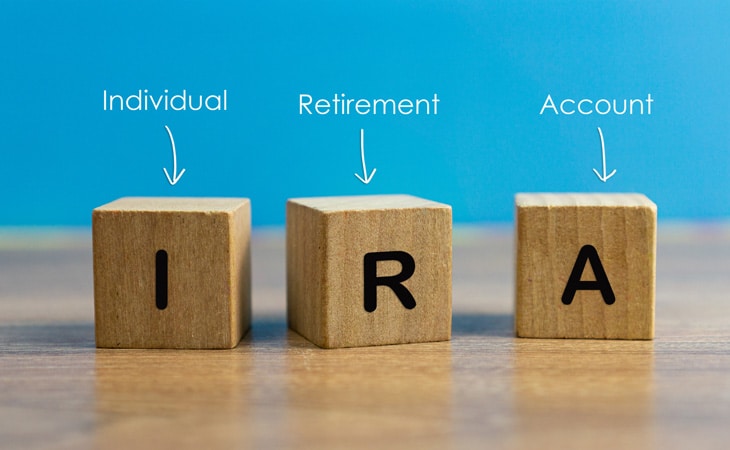The cornerstone of any solid financial plan is the retirement plan. However, the hustle and bustle of moving, living, and working abroad can easily make crafting a unique retirement plan a forgotten priority. This is especially compounded by the fact that there are extra complications with US-based investing while living abroad.
However, just because it’s easy for retirement planning to be forgotten about doesn’t make it any less vital to the financial planning process.
In this article, we will look at some of the issues Americans face with planning for retirement while abroad, as well as one of the best strategies to continue to grow your wealth against such adversity.

Issues with investing while abroad
Because Uncle Sam is always looking for extra tax revenue, certain bilateral tax agreements between the United States and its allies, including Japan, make investing abroad tricky. While the stated goal of these is to prevent Americans from being double taxed and to prevent fraud, they often have unintended side effects.
For instance, Americans living abroad have limited access to US-based banking, investments, and insurance because firms hardly want to deal with expats. The regulatory framework makes it a headache to bring in new clients living abroad, causing firms to reject new clients altogether. We have seen many clients being told that they need move their money and assets elsewhere once the firm finds out that they’re no longer residing in the US.
Additionally, due to FACTA, many international firms don’t want to work with American clients either. FACTA is a US law that forces international financial institutions to report to the US government any US citizens attempting to open an account abroad. The stated purpose of the act is to help prevent identity fraud. However, the actual effect is that Americans now have difficulty opening financial accounts abroad.
Unfortunately, these regulations make it difficult for Americans living abroad to access almost any financial services. For more insight into the difficulties of being an expat abroad, check out our article here. Firms like Argentum Wealth Management, specializing in working with Americans in Japan, can help alleviate the issue for investors abroad.
Let Us Help You Grow Your Wealth
Talk with us today!
What is a 401(k), and what happens to it when you move abroad?
The 401(k) is the most common retirement account type offered by American employers. When you opt-in for the account, a percentage of your paycheck is automatically paid directly into the investment by your employer. Often, employers will offer to match all or part of your contribution.
One of the biggest things to consider when withdrawing from a 401(k) is that the contributions are invested pre-tax, meaning withdrawals from the account are taxed. If you diligently saved into your 401(k) from when you started working in your 20s, you will tend to have a more significant tax liability when the time comes to withdraw from the account.
401(k) plans also have rules regarding contributions and withdrawals that incentive their use for retirement.
The maximum annual contribution limit is $20,500; however, this is bumped up to $27,000 if you are over 50. If you attempt to withdraw from the account before the age of 59.5, you will incur a fee of 10% on top of the regular taxes that apply.
Additionally, minimum distributions (RMDs) take effect at age 70.5, meaning you must begin withdrawing from the account.

There are several flavors of employer-sponsored retirement plans, technically called defined contribution plans. The type of plan you’re eligible for is entirely down to your employer and what industry they’re in:
- Roth 401(k): The primary alternative to the traditional 401(k) is the Roth 401(k). Roth 401(k)s behave identically to traditional 401(k)’s, except that contributions are made after-tax. This means that any withdrawals, no matter how small or large, are completely untaxed. Employers generally offer Roth 401(k)s less frequently than traditional 401(k)s.
- 403(b): There is also the 403(b) plan, which is designated for employees of certain tax-exempt organizations, such as teachers, professors, government employees, nurses, doctors, and librarians. These function in the same way as 401Ks.
- 401(a): A 401(a) plan is similar to the 403(b) plans, as they’re intended for government, educational, and non-profit employees. However, they often give greater control to the employer for things like eligibility. For instance, the employer could require you to work for a specific period of time longer than a 401(a) would require before you are eligible to enroll.
- 457(b): The 457(b) is like 403(b), and 401(a) plans, except there is no penalty for early withdrawal, and independent contractors can participate in the plan.
Because US-based firms do not want to work with non-US residents, there are only two options for what to do with your 401(k) when you move abroad:
- Leave it with your former employer: Fortunately, US companies are legally required to allow you to leave your 401(k) with your former employee when you leave the company for however long you want. The downside is that you cannot make any new contributions, meaning the account maintenance fees will substantially eat into your gains over time. Except for very specific circumstances, leaving it with your employer is usually not advisable.
- Roll it over into an IRA: Rolling over a 401(k) into an IRA is an easy way to ensure you can contribute to your account and continue to grow your wealth. However, the issues above with using a US-based firm while living abroad still apply, making it essential to select a firm that can provide access to IRA accounts and US assets.

What is an IRA, and how are they affected by moving abroad?
An Individual Retirement Account (IRA) is a self-funded retirement plan which allows you to invest in your own retirement.
You can open an account on your own with a bank or brokerage, or you can have an investment advisor open and maintain one on your behalf. You can invest in various assets, including stocks, bonds, ETFs, mutual funds, real estate, and commodities.
Because IRAs are intended to be used as retirement accounts, there are specific rules regarding how contributions can be made and withdrawn.
For example, the annual contribution limit in 2022 for those under 50 is $6,000 and for those over 50 is $7,000. Withdrawals can be made before age 59.5; however, there is an additional 10% penalty.
If you reach age 72 and haven’t made any withdrawals, you are legally required to make minimum withdrawals (RMDs).
Just like 401(k) plans, IRAs come in several flavors. However, the two most common are the traditional and Roth IRAs:
- Traditional IRA: Like the traditional 401(k), this is the most common type of IRA. It allows you to contribute to your retirement with pre-tax dollars. The contributions are deductible from your taxable income, meaning your income that can be taxed is decreased. You’d want to consider using a traditional IRA if you believe income and capital gains taxes will be considerably lower when you begin withdrawing from the account.
- Roth IRA: The Roth IRA was created after the traditional IRA and allows you to make post-tax contributions. This means that all your money invested will grow without fear of the gains being taxed upon withdrawal. Additionally, contributions can be withdrawn at any time without taxes or penalties. A Roth IRA might be the right account choice if you believe that income and capital gains taxes will be considerably higher when you begin your withdrawals.
Although IRAs are much more flexible than 401(k) plans, you will still run into issues with firms letting you continue using your account while living abroad. To open up a Roth IRA Japan is not the best place to reside.
Many people have gotten away with switching their permanent address to a relative’s home, but firms have gotten stricter about reporting and auditing those claims.
The best way to handle an IRA while living abroad, especially a rollover from a 401(k), is to hand it off to a firm that specializes in working with expats abroad and has unrestricted access to US accounts and investments.

What is a Rollover? Why should you do one?
A Rollover is a process where you transfer the assets from your 401(k) to another retirement account of a similar nature, typically another 401(k) or a traditional IRA.
Although it may seem like unnecessary extra steps, there are several reasons why you would want to initiate a 401(k) Rollover:
- You’re moving abroad: As previously mentioned, the US government makes it prohibitively difficult to open accounts with US or foreign-based firms. Finding a firm with access to US accounts and rolling over your 401(k) into those new accounts will significantly improve your financial life and peace of mind.
- You are switching jobs: Just because you’re ready to leave your old employer doesn’t mean you should leave your old 401(k) too. Although US employers are legally required to hold onto your 401(k) for as long as you want, it is still smart to roll it over to your current employer or an IRA to simplify your financial life.
- You’re retiring: Due to the nuanced differences between defined contribution plans and IRAs, transferring your assets to an IRA may be wise. Greater flexibility, lower costs, and more freedom may make initiating a rollover ideal for your financial situation.
Pay attention to where your hard-earned retirement money is, and do not leave any behind in the excitement of a life change when moving abroad.
Because 401(k) accounts do not automatically follow you from job to job, Americans collectively have about $1.35 trillion left behind in retirement accounts connected to previous employers.
When you initiate a Rollover, there should not be a tax liability incurred.
If you decide to Rollover the 401(k) into an IRA, then the resulting account will be a traditional IRA that is often labeled as a “Rollover IRA.” From here, the account can be converted to a Roth IRA (a Roth Conversation) or held until withdrawals are made.

Closing
There are many moving parts and complications when it comes to planning for your retirement as a US citizen living in Japan. Having a financial advisor close at hand can help you manage your existing US accounts to maximize growth and ensure they are set up correctly.
Argentum can help US nationals with their investment needs, including help with their US holdings. Please feel free to contact us for a free consultation and find out more about your options while living abroad.
Argentum Wealth does not provide tax, legal or accounting advice. This material has been prepared for informational purposes only, and is not intended to provide, and should not be relied on for, tax, legal or accounting advice. You should consult your own tax, legal and accounting advisors before engaging in any transaction.
Argentum Wealth Management is licensed through the Japanese Financial Services Authority to give financial advice. The FSA strongly recommends that you only receive financial advice and services from a locally licensed and regulated firm.













